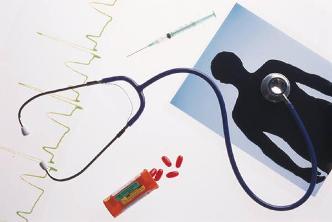Protect Your Aging Parents' Health:
Get the Big Picture of Working with Medical Specialists and Understand their Medical Specialties
Interacting with medical specialists in the health care system will happen more and more as your parents age. If you and your parents have a clear understanding of the type of medical specialists that you may encounter, it would help you navigate the system for their best outcomes.
Your parents live as a "whole person", but the health care system is heavily weighted toward the role of specialists and to view your parents as a series of conditions. It is wonderful to have people willing to dedicate their time and professional careers to pursue a depth of understanding that would elude others. However, this highly specialized and divided system of health care will require your vigilance to see that these specialized physicians work in a coordinated way that is beneficial and not ultimately harmful to your parents.
If your parent is referred to a specialist there several questions to ask first,

It's important to begin with an overview of the way the health care system and medical specialties are actually divided. You should make use of the tools to discover if your medical specialist is board certified or has ever had disciplinary actions.
American Board of Medical Specialties
The American Board of Medical Specialties is the umbrella organization that manages the 24 medical specialty boards that are responsible for standards, testing and certification of the doctors who qualify. Medical specialists will be listed according to the 24 specialties and 145 sub-specialties. Each has strict standards for education and testing.
You can check the website
www.abms.org to determine whether your specialist is Board Certified. By law, any licensed physician can perform any surgery or medical procedure. The additional board certification signifies years of additional study specific to that field.
Medical Specialties that could relate to senior citizens
The medical specialties and sub-specialties below, represent a partial list of the ones that could relate to senior citizens.(For instance, the pediatric specialties have been eliminated.) Click on
this interactive graphic to see the specific specialties, a definition, and the corresponding area of the body. You can also use the "Learn More" feature on this graphic if you want detailed information about the program and length of study required for any specialty. Understand more about your medical specialist from the list below:
Allergy & Immunology - diagnosis and treat diseases of the immune system such as asthma or autoimmune diseases. (Allergist - Immunologist)
Anesthesiology - management of drugs to cause insensitivity to pain
Colon and Rectal Surgery - treating diseases of small & large intestines and rectum
Dermatology - diseases of the skin, hair nails, oral cavity and genitals
Emergency Medicine - immediate decision-making to prevent further injury or death in acute cases
Family Medicine - treating both adults and children
is a family doctor that has additional training across several disciplines all concerning the aging process. They have developed special skills in the diagnostic, therapeutic, preventive and rehabilitative aspects of illness in the elderly. This specialist cares for senior citizens in a variety of settings: in the office or hospital, or at the patient's home or nursing homes
These medical specialists are doctors with training and special skills related to pain management and relieving suffering in illness at the end of life. They work with a team of other people to maintain physical, spiritual, mental and social quality of life until the end. They also engage the whole family in the grief process. They can help the patient and family access resources in the medical and larger community.
These doctors specialize in issues related to sleep disturbance. They have the skills for testing (using sleep labs and polysomnography) and diagnosis diseases and conditions that interrupt the sleep cycles.
Internal Medicine - treating adults
Medical Genetics - diagnosis and treatment of diseases of genes and the structures of inheritence (like RNA, DNA, chromosomes)
Neurological Surgery - operations of nervous system, brain & spinal cord
Nuclear Medicine - using small bits of radioactive material to make images of the inside of the body
Obstetrics and Gynecology - treatment of female reproductive system
Ophthamology - eyes and treatments of all diseases that affect the ocular systems
Orthopaedic Surgery - skeletal system
Otolaryngology - related to seven areas of the ear, nose & throat (like sinuses, larnyx(voice box)
Pathology - study of disease; identifying diseases by studying cells under a microscope
Physical Medicine and Rehabilitation - treatment of physical disability (Physiatrist)
Plastic Surgery - repair, rebuilding or replacing physical aspects of the body
Preventive Medicine - how to avoid disease beforehand (proactive approach)
Psychiatry and Neurology - diagnosis and treatment of addictions and mental disorders
Radiology - using radiation for the diagnosis and treatment of diseases
Surgery - can involve cutting, or lasers to enter and change part of the body
Thoracic Surgery - chest
Urology - urinary organs in women and urinary tract & sexual organs in men
Use the Recommendations of Others
You can check for recommendations and experience of other people with medical specialists at Consumer Reports or Angie's list. Malpractice suits are recorded by the Federation of State Medical Boards. For a small fee you can receive a comprehensive report at
docinfo.org. In addition to malpractice suits, this report records disciplinary actions or if a medical license has been suspended or revoked for any reason in any state.
Click to go from Medical Specialists to Senior Health Care
Understand and talk about senior health care issues with your aging parents.
Return to the talk early talk often with aging parents Home Page